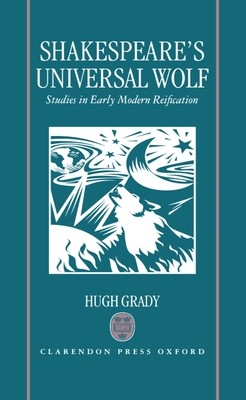
- We will send in 10–14 business days.
- Author: Hugh Grady
- Publisher: Clarendon Press
- ISBN-10: 019813004X
- ISBN-13: 9780198130048
- Format: 14 x 21.6 x 1.8 cm, hardcover
- Language: English
- SAVE -10% with code: EXTRA
Reviews
Description
In Troilus and Cressida, Shakespeare's image of "an universal wolf" of appetite, power, and will represented and critiqued the emerging systems of modernity: mercantile capitalism, Machiavellian politics, and value-free rationality. Rereading Troilus, Othello, King Lear, and As You Like It, Grady finds many parallels between Shakespeare's criticism and that of such critics as Marx, Horkheimer, Adorno, and Foucault, among others. In particular, Grady points to Shakespeare's keen interest in the twentieth-century concept of "reification," where social systems spin out of control, operating under their own autonomous logic, beyond the reach of the society which had created them.
EXTRA 10 % discount with code: EXTRA
The promotion ends in 20d.04:07:18
The discount code is valid when purchasing from 10 €. Discounts do not stack.
- Author: Hugh Grady
- Publisher: Clarendon Press
- ISBN-10: 019813004X
- ISBN-13: 9780198130048
- Format: 14 x 21.6 x 1.8 cm, hardcover
- Language: English English
In Troilus and Cressida, Shakespeare's image of "an universal wolf" of appetite, power, and will represented and critiqued the emerging systems of modernity: mercantile capitalism, Machiavellian politics, and value-free rationality. Rereading Troilus, Othello, King Lear, and As You Like It, Grady finds many parallels between Shakespeare's criticism and that of such critics as Marx, Horkheimer, Adorno, and Foucault, among others. In particular, Grady points to Shakespeare's keen interest in the twentieth-century concept of "reification," where social systems spin out of control, operating under their own autonomous logic, beyond the reach of the society which had created them.


Reviews